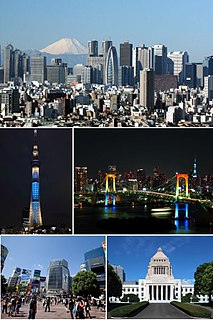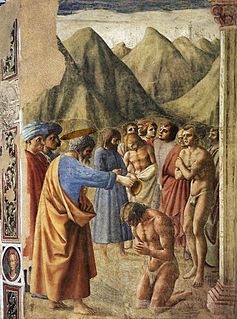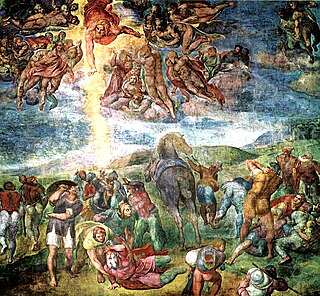Murai Jun (村井ジュン, 1897 - 1970) was the founder of what is regarded today as the largest indigenous church in Japan - Iesu no Mitama Kyōkai, was born into a Methodist family in Tokyo and later studied theology at Aoyama College. While he was studying there, something troubled him deeply to the point of anticipating suicide. Hence Murai planned to jump overboard a ferry near Okayama Prefecture during 1918. However, when he was about to jump overboard, he felt that the Holy Spirit's presence suddenly overwhelmed him and he began speaking in tongues. That experience gave him new courage to accept the Christian faith and his previous lack of confidence in the religion was now eliminated. Murai then abandoned Aoyama College to begin preaching the gospel. Not long afterwards, he was assigned as a pastor for the Japan Bible Church . In 1933, Murai informed his small church group in Tokyo's Nishisugamo of his Pentecostal experience which had changed his life.
The Spirit of Jesus Church, was registered in 1941 in Japan by Murai Jun. The church was named in accordance with a heavenly vision he reportedly received in 1941. The core mission of the Spirit of Jesus Church, is defined in the Gospel of Mark 16:15-18. There he instructed his disciples to preach the gospel and baptize the believers, and promised the power to perform miracles, cast out demons, speaking in tongues, and heal the sick. It is one of the fastest-growing Christian bodies in Japan, having increased its membership from 34,477 in 1970 to 433,108 at the end of the 1980s. Taken at face value, the Spirit of Jesus Church is one of the largest New religious movements in Japan. They also reject the Trinitarian doctrine and claims to be the only true Christian church in the world

Tokyo, officially Tokyo Metropolis, one of the 47 prefectures of Japan, has served as the Japanese capital since 1869. As of 2018, the Greater Tokyo Area ranked as the most populous metropolitan area in the world. The urban area houses the seat of the Emperor of Japan, of the Japanese government and of the National Diet. Tokyo forms part of the Kantō region on the southeastern side of Japan's main island, Honshu, and includes the Izu Islands and Ogasawara Islands. Tokyo was formerly named Edo when Shōgun Tokugawa Ieyasu made the city his headquarters in 1603. It became the capital after Emperor Meiji moved his seat to the city from Kyoto in 1868; at that time Edo was renamed Tokyo. Tokyo Metropolis formed in 1943 from the merger of the former Tokyo Prefecture and the city of Tokyo. Tokyo is often referred to as a city but is officially known and governed as a "metropolitan prefecture", which differs from and combines elements of a city and a prefecture, a characteristic unique to Tokyo.

Theology is the critical study of the nature of the divine. It is taught as an academic discipline, typically in universities and seminaries. It occupies itself with the unique content of analyzing the supernatural, but also especially with epistemology, and asks and seeks to answer the question of revelation. Revelation pertains to the acceptance of God, gods, or deities, as not only transcendent or above the natural world, but also willing and able to interact with the natural world and, in particular, to reveal themselves to humankind. While theology has turned into a secular field, religious adherents still consider theology to be a discipline that helps them live and understand concepts such as life and love and that helps them lead lives of obedience to the deities they follow or worship.
During 1941, whilst in Taiwan, he came across the True Jesus Church, and indigenous Chinese church that had only been established for over 20 years . He accepted the main doctrines of the church and received baptism; he then left his previous church denomination. However, during that year, Murai's wife claimed that she had received a revelation from God to establish a new church which was to be given the name イエス之御霊教会 (Spirit of Jesus Church).

Taiwan, officially the Republic of China (ROC), is a state in East Asia. Neighbouring states include the People's Republic of China (PRC) to the west, Japan to the northeast, and the Philippines to the south. Taiwan is the most populous state and largest economy that is not a member of the United Nations (UN).

Baptism is a Christian rite of admission and adoption, almost invariably with the use of water, into Christianity. The synoptic gospels recount that John the Baptist baptised Jesus. Baptism is considered a sacrament in most churches, and as an ordinance in others. Baptism is also called christening, although some reserve the word "christening" for the baptism of infants. It has also given its name to the Baptist churches and denominations.

Pentecostalism or Classical Pentecostalism is a renewal movement within Protestant Christianity that places special emphasis on a direct personal experience of God through baptism with the Holy Spirit. The term Pentecostal is derived from Pentecost, the Greek name for the Jewish Feast of Weeks. For Christians, this event commemorates the descent of the Holy Spirit upon the followers of Jesus Christ, as described in the second chapter of the Acts of the Apostles.

Nontrinitarianism is a form of Christianity that rejects the mainstream Christian doctrine of the Trinity—the teaching that God is three distinct hypostases or persons who are coeternal, coequal, and indivisibly united in one being, or essence. Certain religious groups that emerged during the Protestant Reformation have historically been known as antitrinitarian, but are not considered Protestant in popular discourse due to their nontrinitarian nature.

Restorationism, also described as Christian primitivism, is the belief that Christianity has been or should be restored along the lines of what is known about the apostolic early church, which restorationists see as the search for a purer and more ancient form of the religion. Fundamentally, "this vision seeks to correct faults or deficiencies by appealing to the primitive church as a normative model."
Oneness Pentecostalism is a movement within the Christian family of churches known as Pentecostalism. It derives its distinctive name from its teaching on the Godhead, which is popularly referred to as the "Oneness doctrine," a form of Modalistic Monarchianism. This doctrine states that there is one God, a singular divine Spirit, who manifests himself in many ways, including as Father, Son, and Holy Ghost. This stands in sharp contrast to the doctrine of three distinct and eternal persons posited by Trinitarian theology. Oneness believers baptize in the name of Jesus Christ, rather than using the Trinitarian formula.

The Assemblies of God (AG), officially the World Assemblies of God Fellowship, is a group of over 140 autonomous but loosely associated national groupings of churches which together form the world's largest Pentecostal denomination. With over 397,000 ministers and outstations in over 256 countries and territories serving approximately 69.1 million adherents worldwide, it is the fourth largest international Christian group of denominations and the largest Pentecostal denomination in the world.
The Church of God is a holiness Pentecostal body that descends from the Christian Union movement of Richard Spurling, A. J. Tomlinson and others. They consider themselves officially The Church of God, but also designate themselves as The Church of God and The Church of God , which is the name of their headquarters.
The Pentecostal World Fellowship is a fellowship of Evangelical Pentecostal churches and denominations from across the world. The headquarters is in Kuala Lumpur, Malaysia. Its leader is the Malaysian Prince Guneratnam.

Makuya , based at the Tokyo Bible Seminary, is a religious movement in Japan founded in 1948 by Ikurō Teshima. To grasp the inner truth of Biblical religion, or the "Love of the Holy Spirit" as Teshima puts it, and to extol this existential love by embodying it and living accordingly is the essence of the Makuyas' religious life. They are fervently identified with the cause of Israel, conceiving the establishment of the State of Israel and the unification of Jerusalem as essentially a fulfillment of biblical prophecies.

Bakht Singh Chabra also known as Brother Bakht Singh was a Christian evangelist in India and other parts of South Asia. He is often regarded as one of the most well-known Bible teachers and preachers and pioneers of the Indian Church movement and Gospel contextualization. According to Indian traditions, he is also known as 'Elijah of 21st Century' in Christendom. According to his autobiography, Bakht Singh first experienced the love and presence of Jesus when he was an engineering student in Canada in 1929. Even though previously he had torn up the Bible and was strongly opposed to Christianity, he then became a Christian. He was India's foremost evangelist, preacher and indigenous church planter who founded churches and established Hebron Ministries. He began a worldwide indigenous church-planting movement in India that eventually saw more than 10,000 local churches. Singh died on 17 September 2000, in Hyderabad, India.
The Indian Pentecostal Church of God (IPC) is the largest Pentecostal denomination in India.

Conversion to Christianity is a process of religious conversion in which a previously non-Christian person converts to Christianity. Converts to Christianity typically make a vow of repentance from past sins, accept Jesus as their Savior and vow to follow his teachings as found in the New Testament.

The Assemblies of God USA (AG), officially the General Council of the Assemblies of God, is a Pentecostal Christian denomination in the United States founded in 1914 during a meeting of Pentecostal ministers at Hot Springs, Arkansas. It is the U.S. branch of the World Assemblies of God Fellowship, the world's largest Pentecostal body. With a constituency of over 3 million, the Assemblies of God was the ninth largest Christian denomination and the second largest Pentecostal denomination in the United States in 2011.
Assemblies of God in Great Britain (AOG) is a Pentecostal denomination with 600 congregations throughout the United Kingdom except Northern Ireland, where the Assemblies of God Ireland operates. As the British branch of the 52.5-million-member World Assemblies of God Fellowship, the British Assemblies of God forms part of the largest Pentecostal denomination in the world.

Juji Nakada was a Japanese holiness evangelist, known as "the Dwight Moody of Japan", who was the first bishop of the Japan Holiness Church and one of the co-founders of the Oriental Missionary Society.

The New Zealand Samoan Assemblies of God (SA/G) or (SAOG), officially The General Council of the Samoan Assemblies of God in New Zealand Inc. are a group of Pentecostal congregations predominantly made up of Samoan people. It was established in New Zealand in the early 1960s by a group of Holiness/Pentecostals from Samoa bringing the message of Pentecostalism to their Samoan people living in New Zealand. Certain pioneers such as the late Reverend Makisua Fatialofa with his wife Evangelist Mauosamoa, the late Reverend Dr. Samani Pulepule with the late First Lady Sapapalii, along with the late Reverend Fereti Ama with his wife Lady Leausuone, were the foundation members of the first ethnically fellowship to align itself with the Assemblies of God in New Zealand (A/GNZ). It was this Samoan fellowship that contributed to the growth of the Assemblies of God in New Zealand making it the Nations fastest growing church. By 2005 there were 89 SA/G congregations throughout New Zealand and in that same year some members in the Samoan fellowship felt the need to be a self-governing body and formed its own constitution which split the SA/GNZ national body in two. In late November 2005, 45 churches left the A/GNZ umbrella and formed a break-away group, while 40 churches remained under the A/GNZ movement, although this was the end result both Samoan fellowships still work alongside one another.
The Holy Ecclesia of Jesus also known as the Congregation of Jesus is an independent Japanese church founded by Ōtsuki Takeji (大槻武二) in 1946. It is the third largest of the Japanese-founded churches.
The Holy Ecclesia of Jesus is a movement aimed at recovering apostolic Christianity and entrusted with a special mission regarding the nation of Israel in these "last days." Ōtsuki writes that its authentic mission is not to transmit the doctrine or theology of Christianity, but to manifest the living Christ in our lives. As of 2007, the movement had approximately 5,000 members throughout Japan.
Ōtsuki Takeji was the founder of the third largest independent Japanese church, known as the Holy Ecclesia of Jesus. Ōtsuki was born in Ayabe City in 1906, and as a young man converted to Christianity while a student at Dōshisha Middle school, a private mission school in Kyoto. Ōtsuki was attracted to the faith through the evangelistic preaching of Kanamori Michinori during the daily chapel program and went on to receive baptism. Dissatisfied with Dōshisha's "liberal and socialistic" form of Christianity, Ōtsuki found his way into the Japan Holiness Church in 1930.
Ōtsuki completed his theological training at the Holiness Bible Seminary in Tokyo and engaged in evangelistic work in several locations around Japan before accepting appointment as a missionary to Manchuria in 1936.
As latecomers to Japan's religious scene, both Catholic and Protestant churches have experienced considerable difficulty in shedding their reputation as "foreign religions." While at times the "Westernness" of Christianity has contributed to its appeal among Japanese, for the most part it has been viewed as a problem. Many early Japanese converts to Christianity felt that Christianity was unnecessarily bound to Western organizational forms, denominational politics, and missionary control. Although the statistics indicate that most Japanese have rejected the evangelistic appeals and demands of Western missionaries, the development of independent Christian movements suggests an alternative to transplanted Christianity.
The first Japanese independent 'church' movement began in 1901, when Uchimura Kanzo formed the Mukyokai, of which his main message was the need for complete and ultimate independence from all human forces and entire reliance on God. Nevertheless, religion without "human wrappings," of course is not really an option. The choice is between imported or indigenous forms. The attempts to establish a Japanese type of Christianity independent of its western origins runs through much of Japanese Christianity.
Pentecostalism is a renewal movement within Protestant Christianity that places special emphasis on a direct personal experience of God through the baptism with the Holy Spirit. For Christians, this event commemorates the descent of the Holy Spirit upon the followers of Jesus Christ, as described in the second chapter of the Book of Acts.
Pentecostalism was established in Kerala at the start of the 20th century.











